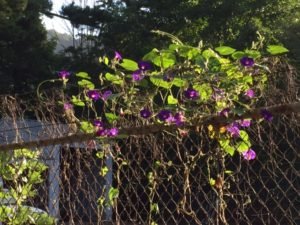
Each year for the past eight or ten, I have been given The Best American Poetry by a member of my family at Christmas time. The adults of our family are assigned, on a rotating basis, their gifts recipient, thus every member of my family has given me a book of this ongoing series. Often our gifts are handmade goodies like quilts, knitted socks, woodcarvings or other recipient-specific presents. Among them, this book is an anomaly though its contents were in a sense handmade with the same patient labor as the others.
Most years I surreptitiously flip through the contents as Santa distributes gaily wrapped and ribboned boxes to the living room of teenagers and middle-aged mothers and fathers. It is only a sneak preview as we all respect the momentum of tradition, the joy of seeing delighted faces.
This year, however, I was pleased and chagrined that even at a later, leisurely perusal of this year’s contents, I had only heard of one or two poets. I had familiarity with none. I was dismayed that I was so ignorant, so out of touch with the contemporary poetry scene. All the names sounded young: some brash, some so exciting as to embody a story even before I had read the poem written by that name. I wondered how to pronounce others. Every one begged to be my friend.
The Best American Poetry is, of course, an anthology culled from the year’s ‘top’ publications by a guest editor of the series. And as with any anthology, the selection process has parameters and prejudices. Most years these concerns are addressed in the guest editor’s introduction, partly for the justification of the picks, partly to dissect current moods of poetry (if you’ll allow me to use this word in such a context.)
Seventy-five poems doesn’t seem like very many—in a conveniently portable sized book— when there are thousands of poems breaking into the public realm each year. This small number serves very well as a tease. If one poem impresses, you may be prompted to research the poet and his or her work; you might even purchase the poet’s collection(s). Some preliminaries can be gleaned from the bio-blurbs at the back of the book, but these may not be enough.
This anthology is not an instruction book (apart from incidental comments in the introduction) the way How-to books include examples to illustrate metaphor or symbolism or the form of a sonnet. It is used, no doubt, as a companion to many critique groups and writing classes as, indeed, information on the copyright page about bulk sale discounts attests.
For me, such readings are a tonic for the winter blahs; I can always find some inspiration from a stranger. After all, anthology is derived from the Greek, through Latin, meaning a collection of flowers, a compendium of literary or musical works.
I hope this doesn’t sound disingenuous, knowing that I read all the poems submitted to Streetlight Magazine and, with Sharon, my co-editor, make judgments constantly. It is a different process than snagging favorite poems from those well-known periodicals.
What is best, anyway? The idea of a superlative in poetry (or any art form) seems to me to be a slippery one with implications of exclusivity, elitism, privilege or maybe just plum luck. To savor any anthology, you have to avoid such thoughts and accept what the anthology intends to accomplish—presenting a slice of poems by a limited, subjective standard. My advice is to enjoy it for what it is, what it has to offer.
You can’t read seventy-five poems at one sitting or even more than a half dozen at a time. So I alternate reading them with the essays of another annual present in The Best American Science and Nature Writing, which, though there may be some thematic overlap with the poems, is a refreshingly different type of writing, though culled in a similar fashion as The Best American Poetry. But as fascinating, as inspirational, as the essays are, they are no substitute for shaking hands with strangers.

Share this post with your friends.

